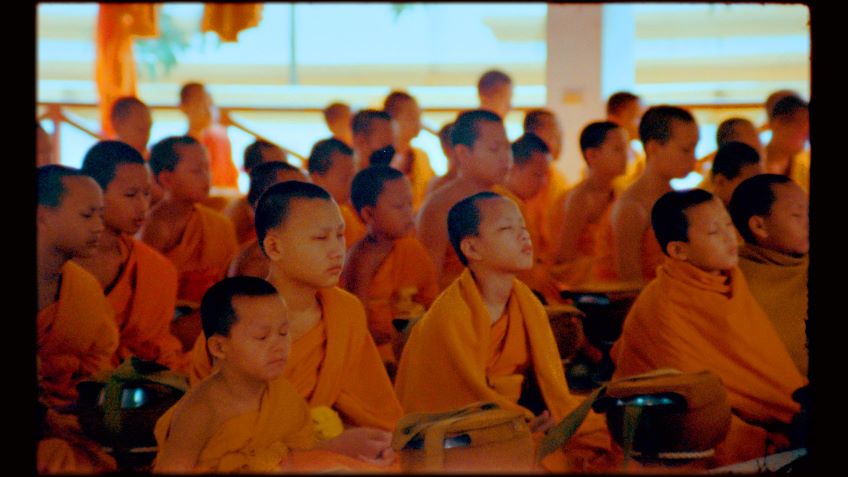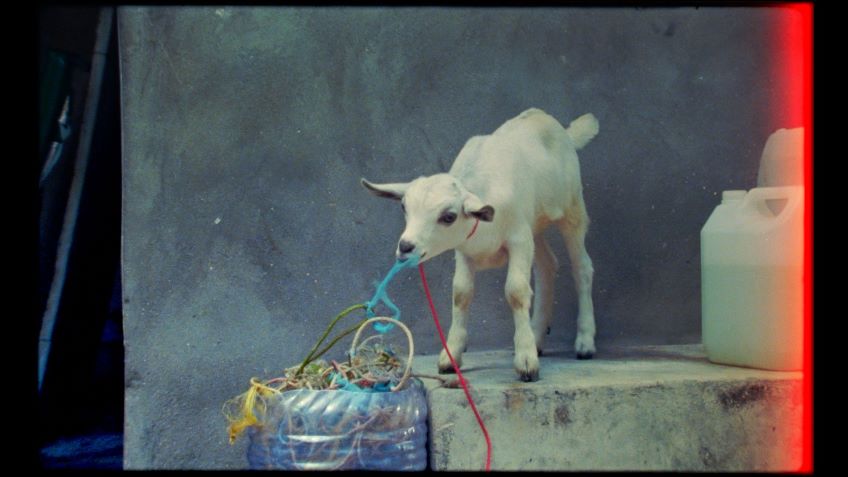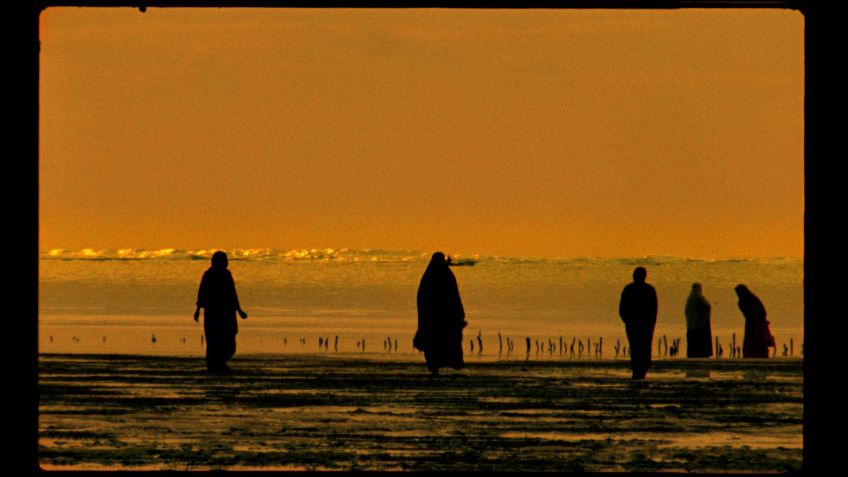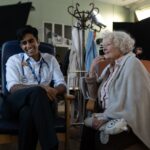Joyce Glasser reviews Samsara (January 26, 2024) 113 mins. In cinemas.
Have you ever felt like closing your eyes for fifteen minutes or so in the middle of a film but are afraid of missing something? If so, this is the film for you. Spanish filmmaker Lois Patiño’s Samara, 16mm meditation on life and death in Lao and Swahili with English sub-titles, invites you to do just that. But this isn’t a gimmick for the sleep deprived; nor is the director being lazy. While your eyes are gently closed, images and sounds take you on a journey, from which you emerge, cine-literally, in a different world.
The duality of life that is present throughout the film is not an abstract notion, but something you are encouraged to see and feel. Audience participation is essential. There are two continents, Laos and Tanzania. There are two communities: one involving young male monks, and an ambitious but spiritual boatsman who reads to a dying lady; the other a largely female group who make their living from the sea in creative ways. And there are two experiences.

Samsara is a term in Sanskrit that refers to the cycle of birth/life/death and reincarnation, a spiritual concept in India that to most of us is both reassuring and frightening. Who knows what you will turn up as in your new life? And is that always better than eternity or just being dead? Thanks to a generous, elderly Buddhist lady, we get a better idea of the sensory journey involved – a kind of vicarious dress rehearsal.
Sound plays as much a part of the film as do images as Patiño wants to stimulate as many of our senses as possible for an immersive experience. His influences range from William S Burroughs’ Dream Machine and sound artists like Francisco Lopez to the light artist James Turrell. There is dialogue, of course, but you are compelled to listen to the sound of the landscape of Laos, with its largely Buddhist population, and Tanzania with its largely Muslim population and mix of Arab, African and Indian cultures.
When the film opens we are in landlocked Laos, Southeast Asia, in the company of a group of young monks meditating and then doing their chores in bright orange robes in an exotic rural village. This section of the film – low on action, plot and dialogue – requires patience but your eyes will feast. Things pick up when a casually dressed young man named Amid asks his mother for the boat key. He is heading down the Mekong River to read to a dying old lady who has one of the most beautiful bedrooms you’ll see this year, partly because of the view.
Amid puts water on her hand to wake her. Upon awakening she says, ‘it’s just as well that we dream as we wake up and they tell us such lovely stories.’ In this one, she says she was a red starfish. She tells Amid she wants to be reincarnated as an animal. ‘People says it’s a punishment but that’s because we treat animals so badly,’ the lady says, a comment that will endear here to the hearts of British viewers.

The scenes where Amid reads to the old woman are magical. Look forward to the part when she charmingly bids goodbye to the objects that have kept her company for so long. You might think of another innovative film, Vortex, about an elderly couple close to death. Filmmaker Gaspar Noé leaves us to ponder the fate of our own cherished belongings, the silent companions and witnesses to our lives.
Eventually, a novice monk called Bee An, who has been observing Amid, asks him about the book he carries around. Amid explains that it’s the Bardo Thodol (The Tibetan Book of the Dead), a book of Buddhist scriptures from Tibet that he’s reading it to an old lady. When Bee An asks why she can’t read it herself, Amid, sounding more like a monk than Bee An, explains, ‘it’s a book that is read to you.’
Bee Ann asks Amid to ferry a group of novices from his temple to the Kuang Si waterfalls: intrepid travellers might want to book their next holiday here. While Amid enjoys the falls the old woman passes away, and we are asked to close our eyes and travel with her.
We awaken, along with a young girl named Juwairiya, in Tanzania. As we acclimatise, Juwairiya is greeted by exciting news and a new companion to care for. The activity on the gorgeous remote coast of the archipelago of Zanzibar reinforces the theme of reincarnation as a group of enterprising women farm seaweed and learn how to turn it into soap for the tourists. Juwairiya’s grandmother says it all when she explains that “life is change.”
If you do not emerge from the cinema changed, you will at the very least feel you have been taken on a long journey with haunting memories that will stay in your mind.




